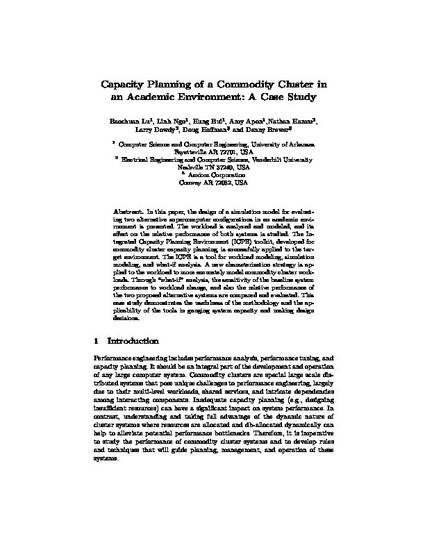
In this paper, the design of a simulation model for evaluating two alternative supercomputer configurations in an academic environment is presented. The workload is analyzed and modeled, and its effect on the relative performance of both systems is studied. The Integrated Capacity Planning Environment (ICPE) toolkit, developed for commodity cluster capacity planning, is successfully applied to the target environment. The ICPE is a tool for workload modeling, simulation modeling, and what-if analysis. A new characterization strategy is applied to the workload to more accurately model commodity cluster work- loads. Through "what-if" analysis, the sensitivity of the baseline system performance to workload change, and also the relative performance of the two proposed alternative systems are compared and evaluated. This case study demonstrates the usefulness of the methodology and the applicability of the tools in gauging system capacity and making design decisions.
Available at: http://works.bepress.com/amy_apon/29/
